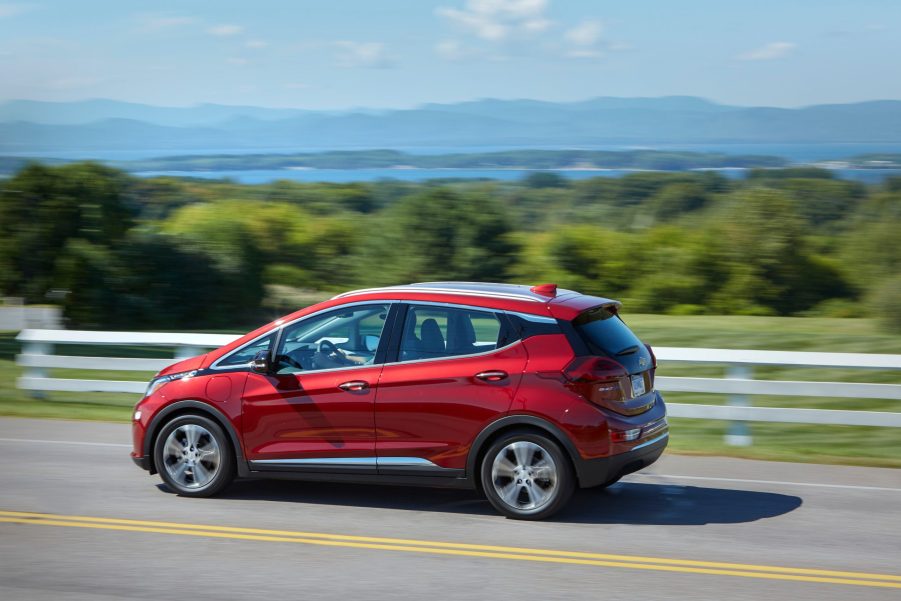
Fire Recalls or Not: NHTSA Says Chevy Bolt Owners Should Take “Precautions”
For the second time in less than a year, the National Highway Traffic Safety Administration wants owners of the 2017-2019 Chevy Bolt to take precautions. It suggests owners not park their Bolt in enclosed areas for concern over a spontaneous fire occurring. And this applies to previously recalled Bolt models as well.
“Owners of the Chevy Bolt should park them outside away from homes and structures”

The NHTSA also suggests keeping an eye on the vehicle while charging. “Owners of these vehicles should park their vehicles outside away from homes and other structures immediately after charging and should not leave their vehicles charging overnight,” says the NHTSA consumer alert.
The previous recall was back in November. Then, GM offered a hardware fix for potential near-capacity battery charges. It was attributed to “high voltage cells produced at LG Chem’s Ochang, Korea facility,” according to GM.
But now the NHTSA says it was informed of two Bolts that were “repaired” catching on fire. So whatever GM thought its recall fixed for earlier fires has proven not to be the case. In November, GM announced a recall of 68,000 Bolts based on five fires and two injuries.
NHTSA’s Chevy Bolt investigation first started in October 2020

The NHTSA originally opened an investigation into the fires in October 2020. After 2019 GM switched battery manufacturers. So even though the first generation Bolt ran through 2020 the recall only took in 2017-2019 models.
At first, GM engineers had no idea what was causing the fires. As an interim fix, it told owners to not fully charge their Bolts. Then this April, it announced what it would do to actually fix what it saw as the problem.
What was Chevy’s original “fix” for the Bolt?

Dealer technicians would diagnose batteries and replace those with “anomalies.” It also said that software would be added that could detect battery charging issues. After the procedures, the cars were allowed to go back to being fully charged.
To its credit, GM has treated the issue mostly with positive actions. In May, MotorBiscuit reported on GM quietly buying back troublesome Bolts from owners. Some owners were even given the full purchase price back from Chevy.
But now things have changed. With this directive from the NHTSA, it has been revealed problems still exist beyond what GM’s fix was to have repaired. If you have a 2017-2019 Chevy Bolt you can go to the NHTSA website or Chevy’s Recall Center. At some point, further directions beyond it suggesting you don’t park in an enclosed structure will be offered. Or better yet, GM will have a fix to ward off future fires.



